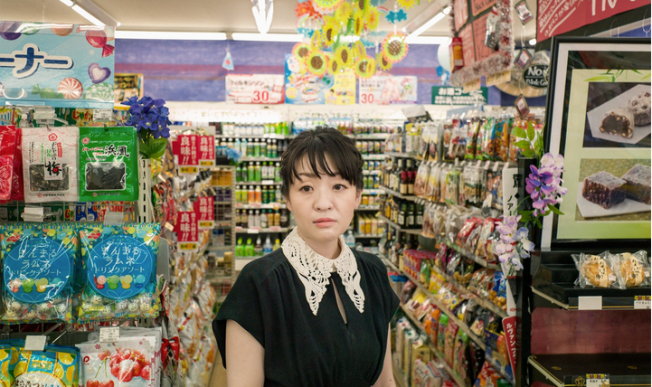John Freeman, the editor of Freeman’s, a literary biannual published by Grove, and author of How to Read a Novelistand Maps, a collection of poems, writes “I think the riskiest kind of novel is the one that tries to rescue us from mundane existence – by taking a closer look at mundane existence.” Sayaka Murata, a part-time convenience-store worker herself, has written that risky novel in Convenience Store Woman.
Keiko Furukura, by her own admission, does not fit the norm of society. She is content to observe others keenly and then to mimic them without their even realizing it so that she appears normal, or like those around her. At 32, she has been working eighteen years at the same 24-hour convenience store, but only as a part-time worker.
Murata draws on her own experiences of working in a convenience store for the themes in her work, both short stories and novels: asexuality, involuntary celibacy, and voluntary celibacy. In Keiko, Murata creates a character who has made a place for herself in a world where she is a square peg in a round hole. While others question her, Keiko remains content in the world she has created for herself.
For a brief time, though, Keiko does wonder if there is not something else besides her existence as the part-time convenience store clerk. This self-questioning occurs when Mr. Shiraha, a discontented man, takes a brief job at the store alongside Keiko. Shiraha rants about women “all after snaring a guy who work at the same company. Women have been like hat since the Stone Age. The youngest, prettiest girls in the village go to the strongest hunters.”
Shiraha complains because he wants a wife who will support HIM. Yet, he is slovenly and unkempt, so no woman will look twice at him, not to mention that he does not want to work himself. He fuels his rage by continuing the rants against women. Not surprisingly, he is soon out of a job. Still, Shiraha’s brief time at the store unsettles Keiko, at least temporarily.
Keiko may not fit into society’s niche the way others expect, but she has found her place in the convenience store. She feels the store’s rhythms and understands the store’s needs. She is friendly and respectful to the customers, often anticipating their needs by their actions or the temperature of the day.
In an interview, Murata explained why she wrote Convenience Store Woman: “I wanted to illustrate how odd the people who believe they are ordinary or normal are. They are the so-called normal people, but when you switch the direction of the camera, it is they who appear strange or odd.”

Convenience stores in Japan sell candy, soft drinks, and quick lunches much like Oklahoma’s own QT. However, at the Japanese stores, customers can pay their utility bills and buy tickets to concerts. The stores also sell shirts, socks, and underwear.
Murata’s Convenience Store Woman won Japan’s prestigious Akutagawa Prize for literature two years ago. While it is her tenth novel, it is the first published in English.

